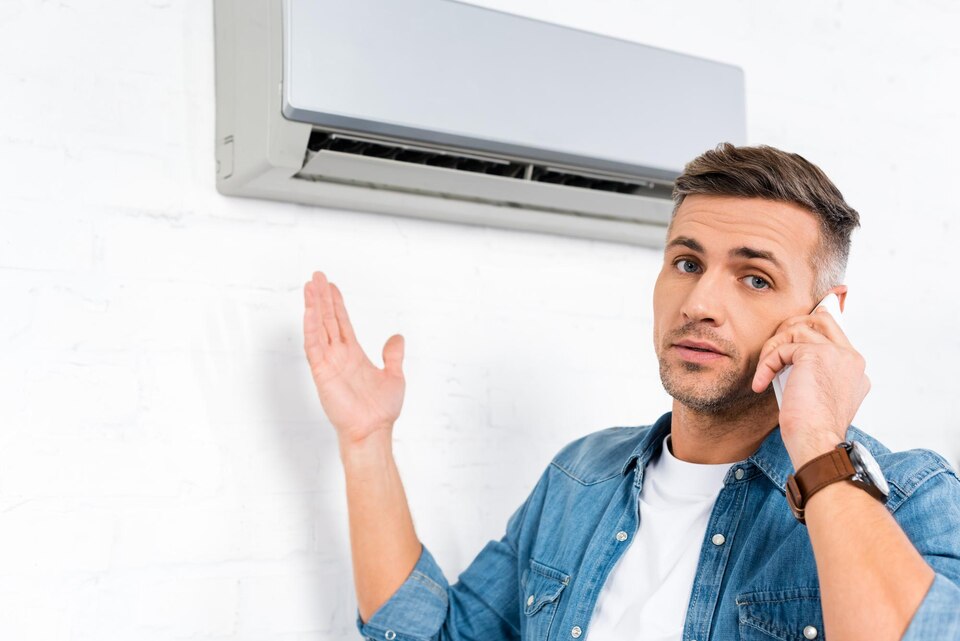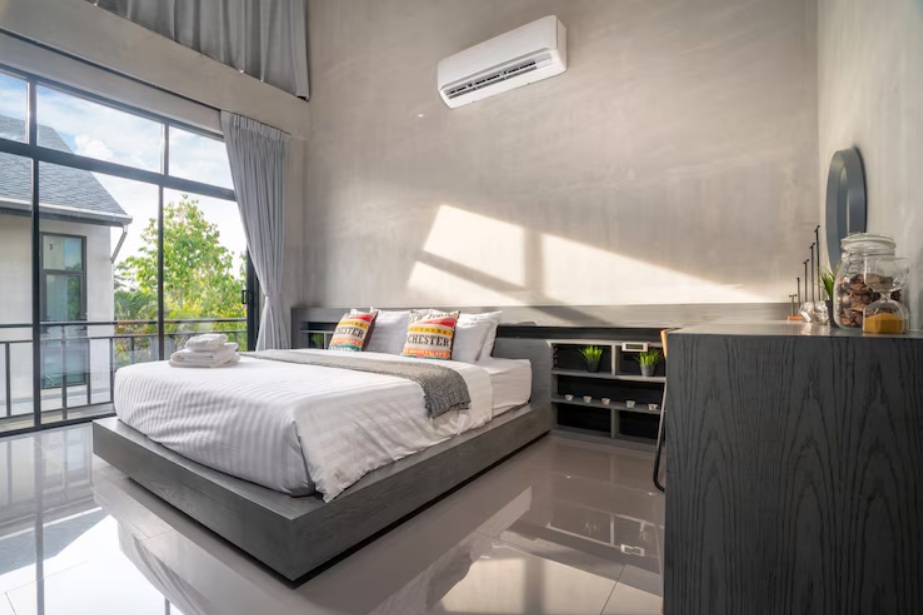When your air conditioner is running but only warm air is coming through the vents, it’s more than a small inconvenience. During the hot summer months in Lakeland, this can quickly lead to frustration and discomfort indoors. A functioning AC isn’t just about comfort; it’s about staying manageable in high heat, especially when you rely on your system to cool your home day and night.
There are several possible reasons behind this problem, and finding out what’s causing it can save both time and money. Whether it’s a worn part, a simple setting error, or a performance issue that’s been building up, the sooner it’s addressed, the better. Below, we break down common causes that homeowners in Lakeland often face when their AC starts blowing warm air.
Common Reasons Your AC Is Blowing Warm Air
If your AC is no longer cooling your home as it should, there are a few things that could be going wrong. Some of these issues are more common than others and can often be caught early with the right attention.
1. Low Refrigerant Levels
Low refrigerant is one of the biggest reasons your system might be blowing warm air. The refrigerant absorbs heat from inside your home and releases it outdoors. When it’s too low, your AC simply can’t cool the air properly.
Common signs of low refrigerant include:
– AC running for longer periods without cooling the space effectively
– Ice or frost build-up on the refrigerant line
– Hissing or bubbling sounds from the unit
If you’ve noticed any of these, it could mean there’s a leak or the system wasn’t charged properly to begin with. Adding refrigerant is not a permanent solution if a leak exists, which is why it’s important to have the system inspected.
2. Dirty Air Filters
Clogged or dirty filters restrict the flow of air through your AC system. When airflow is reduced, it can cause the evaporator coil to freeze, reducing the AC’s ability to cool properly.
Here’s what to know about air filters:
– Filters should be checked monthly during the summer
– Most filters need changing every 30 to 90 days
– Not changing the filter can increase wear on internal components
Even if your system is otherwise working fine, a dirty filter can be enough to make the air feel warm and stuffy.
3. Thermostat Issues
Sometimes the issue isn’t inside the AC unit at all. In some cases, the thermostat may be to blame. It might be misreading the temperature or set to a schedule that doesn’t match your needs.
You can check for:
– Incorrect settings like “heat” mode instead of “cool”
– Old or dead batteries, especially in non-wired models
– Thermostat placement near heat sources or in direct sunlight
A thermostat that’s acting up can cause the system to behave erratically, leaving your home without cool air when you need it most.
These issues are just the beginning of what might be causing your AC problems. Catching them early may prevent bigger repairs down the line.
Mechanical Problems Leading to Warm Air
When your AC’s mechanical parts start to give out, warm air is often one of the first signs something’s wrong. Two of the most important parts to keep an eye on are the compressor and the fan motor.
Start with the compressor. This component plays a key role in the cooling cycle by compressing the refrigerant and pushing it through the system. If the compressor fails or starts to malfunction, the system won’t be able to move refrigerant as it should. That means warm air instead of cool air.
Signs of compressor trouble might include:
– The AC runs constantly but never cools the room
– You hear clanking or clicking from the outdoor unit
– Your circuit breaker trips often when the AC turns on
Next is the fan motor. This part helps move the cooled air into your home. If the motor burns out or the blades are stuck, airflow drops off sharply. A failing fan motor might make unusual sounds or spin slowly. In some cases, the motor might stop working entirely. Without strong airflow across the coil and through the ducts, the unit can’t cool your space efficiently, even if the rest of the system is doing its job.
Mechanical problems like these usually require more than a quick fix. Professional diagnosis is the safest way to prevent further damage and restore your cooling.
Electrical Issues Affecting AC Performance
Electrical problems can quickly stop your AC from delivering cold air. These aren’t always easy to spot from the outside, but they can cause major disruptions and need immediate attention.
First, check if a tripped breaker or blown fuse is the issue. Power interruptions like these often stop the outdoor unit from running even though the indoor fan is still blowing. That causes warm air to push through the vents because the actual cooling isn’t happening. Most breaker boxes are located in garages or utility rooms. Look for any switches that are out of place, and don’t reset them more than once. If the breaker keeps tripping, something deeper is wrong.
The capacitor is another part that might fail. It stores energy to help the compressor and fan motor start up. When it’s faulty, those components may either struggle to switch on or fail completely.
Signs of a bad capacitor include:
– Humming sounds from the unit with no fan activity
– Delayed start or frequent shutdowns
– The unit turns off shortly after starting
These kinds of electrical failures aren’t safe to handle on your own. They can worsen quickly and lead to system-wide damage if ignored. The best approach is to stop using the system and schedule repair to assess what’s failing.
Why Fixes Should Be Left to Professionals
It can be tempting to look for shortcuts or easy fixes, but systems like these need accurate diagnosis and the right tools. Whether it’s a refrigerant issue, a seized motor, or electrical damage, AC work requires experience and safety precautions. Mistakes can be expensive and even dangerous.
Our professionals bring trained insight to every type of AC problem. They know how to test each component, evaluate system pressure, and spot other signs of wear that may not be obvious to an untrained eye. When homeowners let small AC issues drag on, they often end up with larger repair costs and a much warmer home.
One example is a family in Lakeland who ignored a freezing air coil for most of the summer. Their AC eventually stopped blowing any air at all. What started as a small blockage turned into major system strain and led to a cracked evaporator coil that had to be replaced. That repair wasn’t quick or cheap, but with swift action earlier on, it could’ve been prevented.
Getting Back to Comfort in Your Lakeland Home
No one wants to lose AC during peak heat, especially in Lakeland where summer humidity can make indoor conditions unbearable. A unit sending out warm air isn’t something to brush off. It’s a signal that something’s not working as it should and, more importantly, that the issue might escalate if it’s ignored.
Whether it’s thermostat settings, weak airflow, or a failing motor, every part plays a role in keeping the system running how it’s meant to. If any part of that cycle breaks, the comfort of your home takes the hit. Timely AC repair keeps things from spiraling and makes sure your system stays reliable when you need it to work its hardest. Always act early, especially during the hot season, and let professionals do the job right the first time.
If your air conditioner is struggling to keep your home cool during the peak heat in Lakeland, addressing the issue early can prevent a bigger disruption. At First Response Heating & Cooling, our experienced technicians act quickly to identify and resolve the problem. Learn how professional AC repair in Lakeland can help restore comfort and efficiency to your cooling system. For a quick estimate or to book a service visit, please contact us today.






